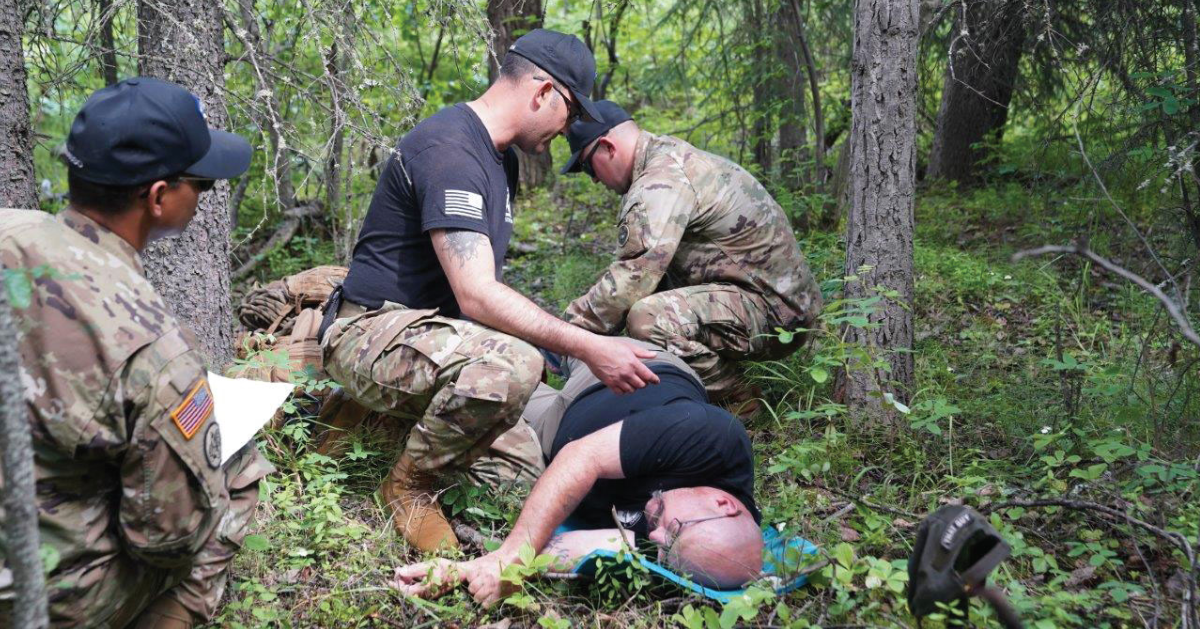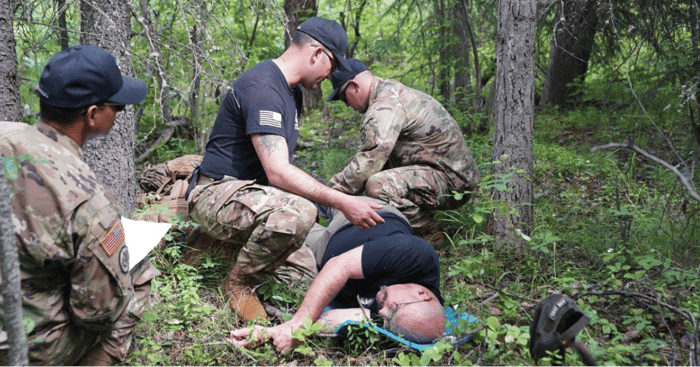Topics from this blog: Alaska West Express Lynden Employees Safety Lynden Training Center Alaska Healthcare
We are looking for motivated, talented, and career-oriented individuals in a variety of positions.

 A broken leg at the top of a mountain. A heart attack on a whitewater rafting trip. These real-life emergencies can and do happen and Tyler Bones and Don Werhonig have the experience and knowledge to teach others how to help those in trouble. "We teach what we do routinely," Tyler says. "Don and I are both on hazmat teams and local response groups outside of work, so we are comfortable sharing what we know."
A broken leg at the top of a mountain. A heart attack on a whitewater rafting trip. These real-life emergencies can and do happen and Tyler Bones and Don Werhonig have the experience and knowledge to teach others how to help those in trouble. "We teach what we do routinely," Tyler says. "Don and I are both on hazmat teams and local response groups outside of work, so we are comfortable sharing what we know."
Rafting guides, Denali climbing guides and the leader of an outdoor recreation program for returning soldiers at Fort Wainwright were all students in Lynden Training Center's latest Wilderness First Responder class this spring. The class has been a regular offering at the Fairbanks training center since 2017.
The 80-hour training draws a broad range of students from a variety of organizations, including: the Department of Natural Resources, Wilderness Search and Rescue personnel, the U.S. Fish & Wildlife Service, aspiring guides, Boy Scout camp rangers, Bureau of Land Management employees, University of Alaska remote researchers, industry personnel that work remotely and Tribal/Native personnel. "A group we are especially proud to work with is the U.S. Army Northern Warfare Training Center," Tyler says.
Wilderness First Responder training is offered by other providers in Alaska, but Lynden's class is unique. "It's been a tough market to break into, but we do a number of things that set us apart. The biggest difference with our program is that our students not only receive a certification as a Wilderness First Responder, but they also are certified as a State of Alaska Emergency Trauma Technician," Tyler explains. "Don and I completed our Fellowship in the Academy of Wilderness Medicine (FAWM) through the Wilderness Medical Society. It was an intense program that required over 100 credits. It's the equivalent of a bachelor's degree for wilderness medicine. There are only 14 other FAWMs in Alaska."
Lynden is fortunate to have the nearby Fairbanks North Star Borough's Tanana Lakes Recreation Area for hands-on real-life simulations for class. According to Don, "We start in the classroom, but quickly transition to hands-on practicals and then field exercises. We use the Recreation Area, which is approximately 750 acres, right outside our gate. It is a perfect place to practice the skills that are learned in the classroom."
Over the past five years, Don and Tyler have trained 67 first responders. "It's always rewarding to hear from past students that have used the skills that they have learned in our courses in real-life emergencies," Tyler says.
Topics from this blog: Alaska West Express Lynden Employees Safety Lynden Training Center Alaska Healthcare
We are looking for motivated, talented, and career-oriented individuals in a variety of positions.